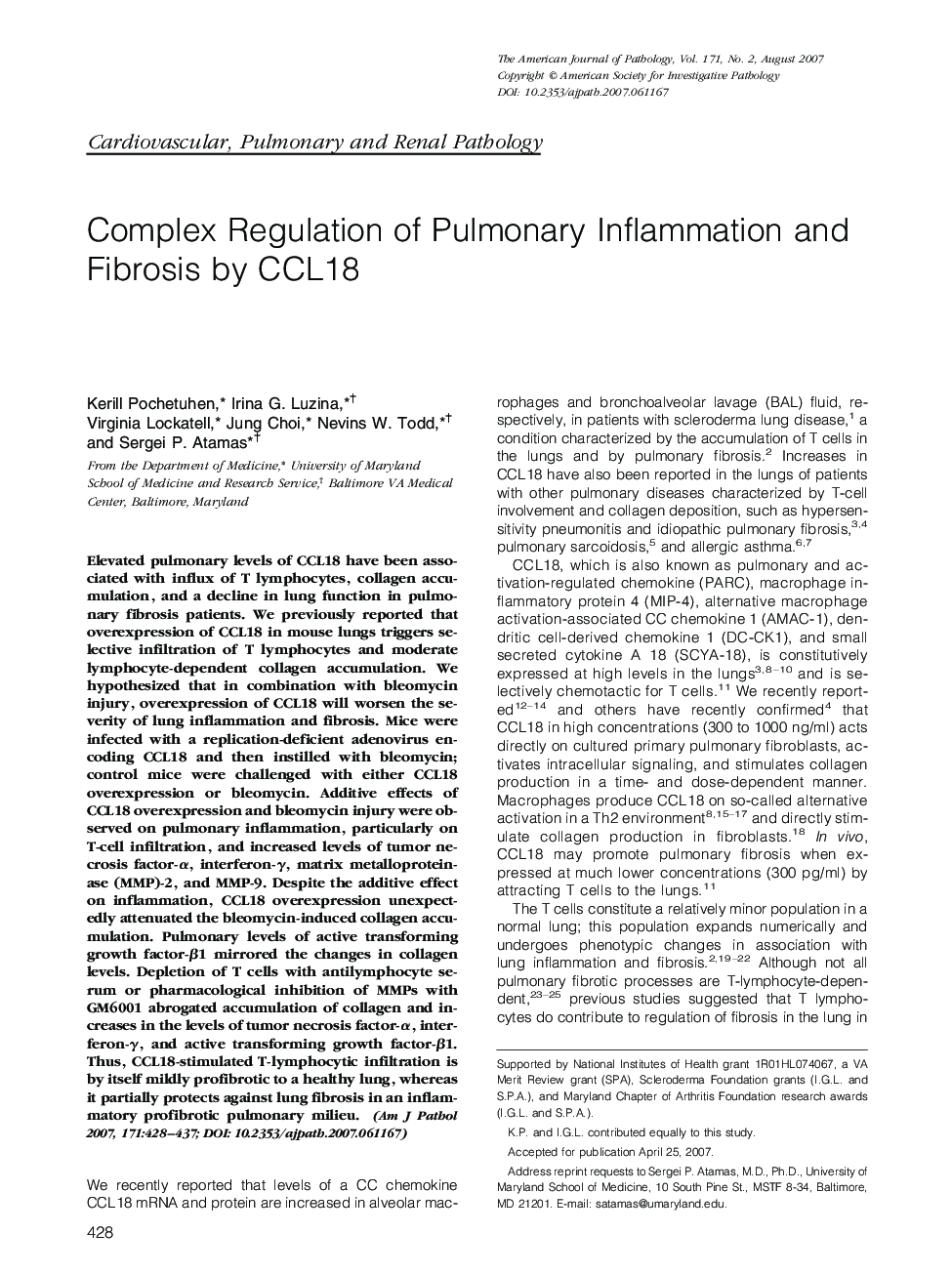| کد مقاله | کد نشریه | سال انتشار | مقاله انگلیسی | نسخه تمام متن |
|---|---|---|---|---|
| 2866697 | 1573475 | 2007 | 10 صفحه PDF | دانلود رایگان |

Elevated pulmonary levels of CCL18 have been associated with influx of T lymphocytes, collagen accumulation, and a decline in lung function in pulmonary fibrosis patients. We previously reported that overexpression of CCL18 in mouse lungs triggers selective infiltration of T lymphocytes and moderate lymphocyte-dependent collagen accumulation. We hypothesized that in combination with bleomycin injury, overexpression of CCL18 will worsen the severity of lung inflammation and fibrosis. Mice were infected with a replication-deficient adenovirus encoding CCL18 and then instilled with bleomycin; control mice were challenged with either CCL18 overexpression or bleomycin. Additive effects of CCL18 overexpression and bleomycin injury were observed on pulmonary inflammation, particularly on T-cell infiltration, and increased levels of tumor necrosis factor-α, interferon-γ, matrix metalloproteinase (MMP)-2, and MMP-9. Despite the additive effect on inflammation, CCL18 overexpression unexpectedly attenuated the bleomycin-induced collagen accumulation. Pulmonary levels of active transforming growth factor-β1 mirrored the changes in collagen levels. Depletion of T cells with antilymphocyte serum or pharmacological inhibition of MMPs with GM6001 abrogated accumulation of collagen and increases in the levels of tumor necrosis factor-α, interferon-γ, and active transforming growth factor-β1. Thus, CCL18-stimulated T-lymphocytic infiltration is by itself mildly profibrotic to a healthy lung, whereas it partially protects against lung fibrosis in an inflammatory profibrotic pulmonary milieu.
Journal: The American Journal of Pathology - Volume 171, Issue 2, August 2007, Pages 428–437